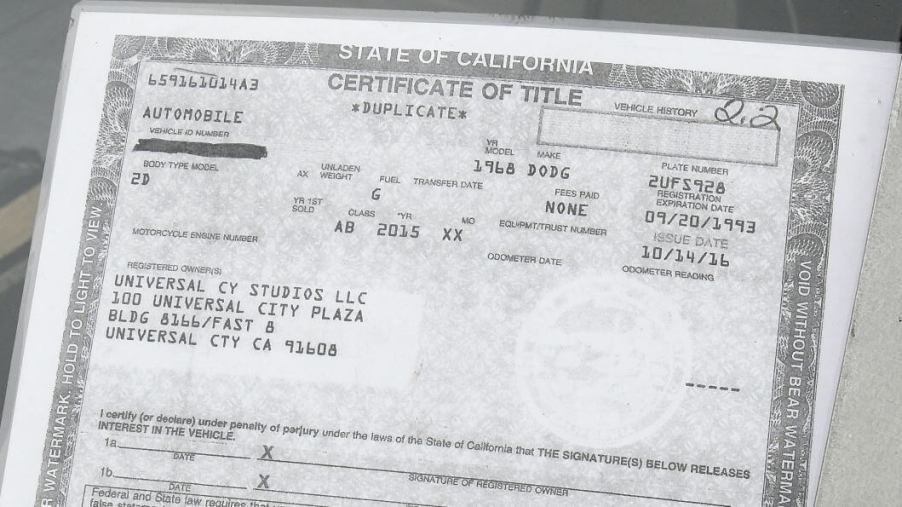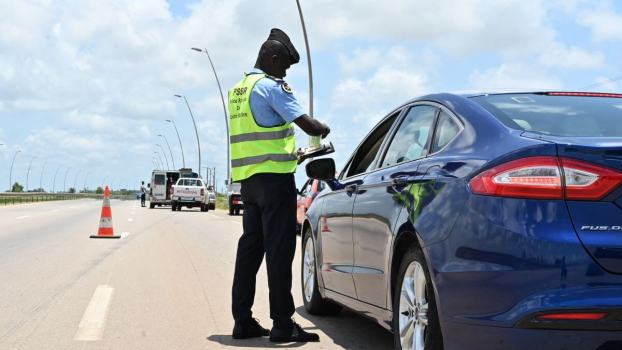
What’s the Difference Between a Rebuilt Title and Salvage Title?
A car title is a state-issued legal document proving ownership of a vehicle. However, there are many types of titles, each designating the specific condition of a vehicle. Two types of car titles, rebuilt and salvage titles, are among the most confusing because a car with a rebuilt title once qualified as having a salvage title. So, what separates these two types of related car titles?
Defining a car title
A car title, or “pink slip,” is a document issued by a state government entity that certifies legal ownership of the vehicle. The title includes identifying information of the car and owner, including the vehicle identification number (VIN), its make, model, year, and mileage at the time of the title issuance, the owner’s full name and address, the issue date of the title, and signatures of the owner and/or a state official.
A car’s title is either transferred to the new owner during the purchase process or if the vehicle is financed, it is held by the loan distributor until the purchaser has completed all payments.
What is a salvage title?
A salvage title denotes a car has incurred serious damage that has dramatically reduced its value. This damage could result from an accident, theft, storm or fire damage, or vandalism that has effectively “totaled” the car. This means the cost associated with its repairs is greater than the car’s value.
How does a salvage title become a rebuilt title?
Though a salvage title typically denotes the car is “totaled,” a mechanic may still repair it and can again be considered roadworthy. In this instance, a rebuilt title is issued, denoting that the car has been, as the name suggests, rebuilt.
This is how a salvage title and rebuilt title are intertwined. A car is first considered “salvage” before it is repaired. Adding to the potential confusion, Carfax notes that some states may use alternate terms for a rebuilt title. These titles can include rebuilt salvage, reconstructed, restored salvage, revived salvage, or rebuilt from salvage.
No matter the term used, any car with a rebuilt title once held a salvage title.
The potential issues in buying a car with a rebuilt title
Vehicles with a rebuilt title are often sold at bargain prices as they are valued significantly lower than cars with clean or clear titles. However, buyers should know that the initial savings could come with headaches.
According to Consumer Reports, some cars with a rebuilt title could have been heavily damaged by hail, and though they have been rebuilt, they can be mechanically sound. However, in the case of flood damage or a severe accident, the car could have frame damage or future electrical problems that could lead to major mechanical or safety issues.
Another concern for buying a car with a rebuilt title is insuring it. While insurance agencies may provide liability coverage on rebuilt vehicles, it may be difficult or impossible to receive comprehensive coverage. As such, your insurance company is unlikely to pay for repairs or replace the car in case of a crash or damage.
You may also have trouble financing your purchase of a car with a rebuilt title, as its overall worth is generally so low loan providers won’t want to assume the risk if you default on your payments.
It is also usually difficult to resell a car with a rebuilt title. Some dealerships will not accept vehicles with rebuilt titles as trade-ins, and if they do, they are likely only to offer a minuscule amount for the car. To boot, private sales of a vehicle with a rebuilt title can also prove difficult, as its sale will require the buyer to assume all the aforementioned risks of purchasing a car with such a title.




